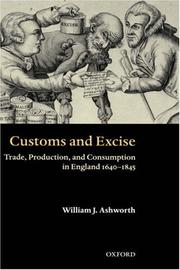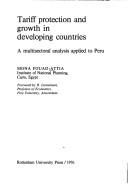| Listing 1 - 10 of 410 | << page >> |
Sort by
|
Book
Year: 1999 Publisher: Washington : U.S. Government Printing Office,
Abstract | Keywords | Export | Availability | Bookmark
 Loading...
Loading...Choose an application
- Reference Manager
- EndNote
- RefWorks (Direct export to RefWorks)
Petroleum products --- Ad valorem tax --- Tax refunds --- Consumer protection --- Prices
Book
Year: 1999 Publisher: Washington : U.S. Government Printing Office,
Abstract | Keywords | Export | Availability | Bookmark
 Loading...
Loading...Choose an application
- Reference Manager
- EndNote
- RefWorks (Direct export to RefWorks)
Petroleum products --- Natural gas --- Ad valorem tax --- Tax refunds --- Prices --- Law and legislation --- United States.

ISBN: 9781134262960 1280563826 9786610563821 020369886X 1134262965 9780203698860 9781134262915 9781134262953 9780415352260 9780415493543 1134262957 0415352266 0415493544 Year: 2017 Publisher: Abingdon, Oxon ; New York, NY : Routledge,
Abstract | Keywords | Export | Availability | Bookmark
 Loading...
Loading...Choose an application
- Reference Manager
- EndNote
- RefWorks (Direct export to RefWorks)
Including contributions from such figures as Douglas Irwin, James Foreman-Peck, Kevin O'Rourke and Max-Stefan-Schulze, this key book summarizes the recent empirical research carried out on the issue of the classical period of trade protectionism. It provides a basis for revising widely held views on the standard effects of tariffs on economic structures and progress, as well as a historical perspective on recent developments.Long-held views on modern trade policies have been challenged by the introduction of recent theoretical developments in international economics and in mea
Protectionism --- Free trade --- History. --- Free trade and protection --- Trade, Free --- Trade liberalization --- International trade --- Commercial policy --- average --- tariff --- revenue --- policy --- rates --- level --- valorem --- rif --- corn --- laws --- History

ISBN: 0801412579 9780801412578 Year: 1980 Publisher: London Cornell University Press
Abstract | Keywords | Export | Availability | Bookmark
 Loading...
Loading...Choose an application
- Reference Manager
- EndNote
- RefWorks (Direct export to RefWorks)
Tariff --- Ad valorem tariff --- Border taxes --- Customs (Tariff) --- Customs duties --- Duties --- Fees, Import --- Import controls --- Import fees --- Tariff on raw materials --- Commercial policy --- Indirect taxation --- Revenue --- Customs administration --- Favored nation clause --- Non-tariff trade barriers --- Reciprocity (Commerce) --- History
Book
Year: 2014 Publisher: Washington, D.C., The World Bank,
Abstract | Keywords | Export | Availability | Bookmark
 Loading...
Loading...Choose an application
- Reference Manager
- EndNote
- RefWorks (Direct export to RefWorks)
This study analyzes the impact on male and female wages of tariff reform and the reduction of regulatory barriers faced by domestic and foreign firms operating in business services. The study applies the model to Tanzania and develops a data set that distinguishes labor and wages by gender for 52 sectors and four skill categories. The model is the first to incorporate modern trade theory to assess the gender implications of trade reform. Given that the Dixit-Stiglitz framework results in productivity gains from additional varieties of services, the analysis finds that real wages increase across all worker categories. However, the increase in wages is higher for males than for females, because business services use males more intensively than females. The most skilled (female and male) workers, who are also the most intensively used in the business services sectors, benefit more from the real increases in wages. The model illustrates that as the development process continues and developing countries become more business service oriented, these sectors demand more educated workers and their wages will increase relative to those of unskilled workers. The policy conclusion from this model is that it is crucial to invest in the education of females so their human capital increases and their skills are more marketable in business services and other more technologically modern occupations. Otherwise, the wage gap between males and females would likely widen further.
Ad Valorem Equivalents --- Communities & Human Settlements --- Economic Theory & Research --- Endogenous Productivity Effects --- FDI in Services --- Gender --- Gender & Health --- Housing & Human Habitats --- Labor Markets --- Labor Policies --- Macroeconomics and Economic Growth --- Social Protections and Labor --- Trade
Book
ISBN: 9282561399 Year: 1986
Abstract | Keywords | Export | Availability | Bookmark
 Loading...
Loading...Choose an application
- Reference Manager
- EndNote
- RefWorks (Direct export to RefWorks)
Foreign trade policy --- Tariff preferences --- -Tariff --- -Ad valorem tariff --- Border taxes --- Customs (Tariff) --- Customs duties --- Duties --- Fees, Import --- Import controls --- Import fees --- Tariff on raw materials --- Commercial policy --- Indirect taxation --- Revenue --- Customs administration --- Favored nation clause --- Non-tariff trade barriers --- Reciprocity (Commerce) --- Differential duty --- Discriminating duty --- Generalized system of preferences (Tariff) --- GSP (Tariff) --- Preferences, Tariff --- Preferential duty --- Preferential tariff --- Trade preferences --- Tariff --- Statistics --- Statistics. --- -Statistics. --- Ad valorem tariff --- European communities
Book
ISBN: 9282806480 9282806596 9282806375 Year: 1997 Publisher: Luxembourg : Office for Official Publications of the European Communities,
Abstract | Keywords | Export | Availability | Bookmark
 Loading...
Loading...Choose an application
- Reference Manager
- EndNote
- RefWorks (Direct export to RefWorks)
Tariff on chemicals --- Tariff --- Chemicals --- Produits chimiques --- Tarif douanier --- Classification. --- Droits de douane --- Classification --- -Tariff --- -Tariff on chemicals --- -Chemicals --- Ad valorem tariff --- Border taxes --- Customs (Tariff) --- Customs duties --- Duties --- Fees, Import --- Import controls --- Import fees --- Tariff on raw materials --- Commercial policy --- Indirect taxation --- Revenue --- Customs administration --- Favored nation clause --- Non-tariff trade barriers --- Reciprocity (Commerce) --- Chemical compounds --- Compounds, Chemical --- Chemistry --- Statistics --- -Classification --- -Ad valorem tariff

ISBN: 0199259216 0191717916 Year: 2003 Publisher: Oxford : Oxford university press,
Abstract | Keywords | Export | Availability | Bookmark
 Loading...
Loading...Choose an application
- Reference Manager
- EndNote
- RefWorks (Direct export to RefWorks)
Great Britain. --- History. --- England --- Angleterre --- Economic conditions --- Commerce --- History --- Conditions économiques --- Histoire --- Excise tax --- Tariff --- -Tariff --- -Ad valorem tariff --- Border taxes --- Customs (Tariff) --- Customs duties --- Duties --- Fees, Import --- Import controls --- Import fees --- Tariff on raw materials --- Commercial policy --- Indirect taxation --- Revenue --- Customs administration --- Favored nation clause --- Non-tariff trade barriers --- Reciprocity (Commerce) --- Internal revenue --- Taxation of articles of consumption --- Great Britain --- Economic conditions. --- -History. --- -History --- Conditions économiques --- Ad valorem tariff

ISBN: 9023722698 9789023722694 Year: 1976 Publisher: Rotterdam: Universitaire Pers Rotterdam,
Abstract | Keywords | Export | Availability | Bookmark
 Loading...
Loading...Choose an application
- Reference Manager
- EndNote
- RefWorks (Direct export to RefWorks)
Third World: economic development problems --- Peru --- Tariff --- Economic development --- Developing countries --- Economic conditions --- -Tariff --- -Ad valorem tariff --- Border taxes --- Customs (Tariff) --- Customs duties --- Duties --- Fees, Import --- Import controls --- Import fees --- Tariff on raw materials --- Commercial policy --- Indirect taxation --- Revenue --- Customs administration --- Favored nation clause --- Non-tariff trade barriers --- Reciprocity (Commerce) --- Development, Economic --- Economic growth --- Growth, Economic --- Economic policy --- Economics --- Statics and dynamics (Social sciences) --- Development economics --- Resource curse --- -Economic development --- -Developing countries --- -Third World: economic development problems --- Ad valorem tariff --- Developing countries: economic development problems --- Tariff - Peru --- Tariff - Developing countries --- Peru - Economic conditions - 1968
Book
ISBN: 072043176X 9780720431766 Year: 1972 Volume: 76 Publisher: Amsterdam : North-Holland,
Abstract | Keywords | Export | Availability | Bookmark
 Loading...
Loading...Choose an application
- Reference Manager
- EndNote
- RefWorks (Direct export to RefWorks)
Foreign trade policy --- Australia --- Tariff --- Mathematical models --- 339.545 <94> --- 330.115 <94> --- -Ad valorem tariff --- Border taxes --- Customs (Tariff) --- Customs duties --- Duties --- Fees, Import --- Import controls --- Import fees --- Tariff on raw materials --- Commercial policy --- Indirect taxation --- Revenue --- Customs administration --- Favored nation clause --- Non-tariff trade barriers --- Reciprocity (Commerce) --- Boycot. Contingentering. Handelsbelemmering. Embargo. Handelsoorlog. Protectionisme. Discriminatie. Autarchie--Australië --- Econometrie--Australië --- Mathematical models. --- -Boycot. Contingentering. Handelsbelemmering. Embargo. Handelsoorlog. Protectionisme. Discriminatie. Autarchie--Australië --- 330.115 <94> Econometrie--Australië --- 339.545 <94> Boycot. Contingentering. Handelsbelemmering. Embargo. Handelsoorlog. Protectionisme. Discriminatie. Autarchie--Australië --- -330.115 <94> Econometrie--Australië --- Ad valorem tariff --- Tariff - Australia - Mathematical models
| Listing 1 - 10 of 410 | << page >> |
Sort by
|

 Search
Search Feedback
Feedback About UniCat
About UniCat  Help
Help News
News